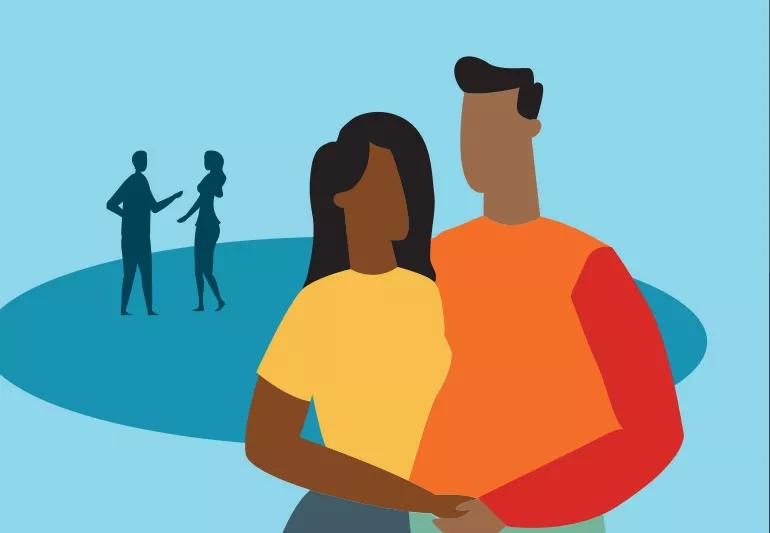5 tips for healthy friendships outside marriage

If you believe all those sappy anniversary posts, your spouse is supposed to be your “best friend ever.” But what if your first-choice date for happy hour isn’t your significant other? Are you doing something wrong if you have a bestie who doesn’t share your bed?
Advertisement
Cleveland Clinic is a non-profit academic medical center. Advertising on our site helps support our mission. We do not endorse non-Cleveland Clinic products or services. Policy
“Having a partner who is your best friend can be sweet, but it doesn’t have to be that way,” says psychologist Scott Bea, PsyD. “Culturally, we have this idea that our spouse should be our best friend — but there’s no single template for a successful marriage.”
He offers his tips for balancing your buddies with your wedded bliss.
Downer alert: A 2018 survey by health insurance company Cigna found almost half of Americans reported feeling lonely at least sometimes. Other research suggests that people today have fewer close pals than they did a generation ago.
For many people, that’s a problem. Friends make life more fun in good times and offer support and comfort during rough patches.
“Having close connections with others is one of the top predictors of happiness,” says Dr. Bea. “Human beings need friends.”
Nonromantic friendships can be an escape from the pressures of adulting. “In a marriage, you share a lot of duties: Laundry, kids, yard work, bills. With friends, you don’t share those obligations, so the friendship can feel lighter,” Dr. Bea says.
The key to friendships outside of marriage? It’s all about finding a balance that works for you and your partner. These tips can help you reach equilibrium.
Advertisement
And if you find it’s easier to talk with friends than with your partner? That’s a flashing sign that you need to work on your communication skills, Dr. Bea says. Start by talking about the role your friends play in your life. And who knows, once you start communicating more, you might want your spouse to join you for happy hour — at least every now and then.
Advertisement

Sign up for our Health Essentials emails for expert guidance on nutrition, fitness, sleep, skin care and more.
Learn more about our editorial process.
Advertisement

Communicating clear limits helps protect your time, energy and emotional well-being

Being hooked on love can cause unhealthy relationship patterns and obsessive thoughts

When someone guilt trips you, they’re using emotionally manipulative behavior to try to get you to act a certain way

This behavior is usually a sign that the other person doesn’t know how to handle conflict or is prone to being passive-aggressive

It can be harder to let go when you’ve invested time, energy and emotions — but it might be the healthier choice long term

Attachment theory suggests that your earliest relationships shape connections throughout your life

Love languages are defined by the way you prefer to give and receive affection

There are many different ways to love someone and yourself

Even small moments of time outdoors can help reduce stress, boost mood and restore a sense of calm

A correct prescription helps your eyes see clearly — but as natural changes occur, you may need stronger or different eyeglasses

Both are medical emergencies, but they are very distinct events with different causes